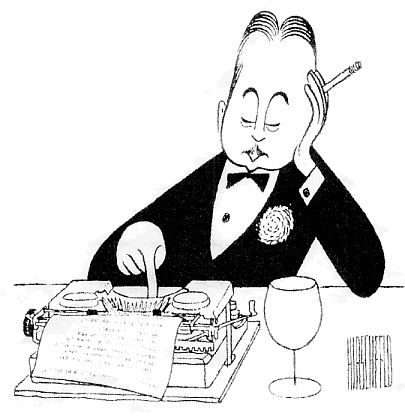Only Mrs. Abraham Lincoln and Ralph Waldo Emerson neglected to register extreme pleasure at being approached by the smiling lad. Both Mrs. Lincoln and Emerson were failing in their minds at the time, however, which satisfactorily explains their coolness, at least for the author. In Mrs. Lincoln’s case an attempt was made to interest her in an autographed photograph of Gen. Grant. But “Edward saw that the widow of the great Lincoln did not mentally respond to his pleasure in his possession.” Could it have been possible that the widow of the great Lincoln was a trifle bored?
The account of the intrusion on Emerson in Concord borders on the sacrilegious. Here was the venerable philosopher, five months before his death, when his great mind had already gone on before him, being visited by a strange lad with a passion for autographs, who sat and watched for those lucid moments when then sun would break through the clouded brain, making it possible for Emerson to hold the pen and form the letters of his name. Then young Edward was off, with another trophy in his belt and another stride made in his progress toward Americanization. Lovers of Emerson could wish that the impersonal editor of these memoirs had omitted the account of this victory.
Americanization seems, from the present document, to consist of, first, making as many influential friends as possible who may be able to help you at some future time; second, making as much money as possible (young Edward used his position as stenographer to Jay Gould to glean tips on the market, thereby cleaning up for himself and his Sunday-school teacher at Plymouth Church), and third, keeping your eye open for the main chance.
In conclusion, nothing more fitting could be quoted than the touching caption under the picture of the author’s grandmother, “who counselled each of her children to make the world a better and more beautiful place to live in—a counsel which is now being carried on by her grandchildren, one of whom is Edward Bok.”
Could detachment of author and hero be more complete?
XLIII—ZANE GREY’S MOVIE
The hum of the moving-picture machine is the predominating note in “The Mysterious Rider,” Zane Grey’s latest contribution to the literature of unrealism. All that is necessary for a complete illusion is the insertion of three or four news photographs at the end, showing how they catch salmon in the Columbia River, the allegorical floats in the Los Angeles Carnival of Roses and the ice-covered fire ruins in the business section of Worcester, Mass.

